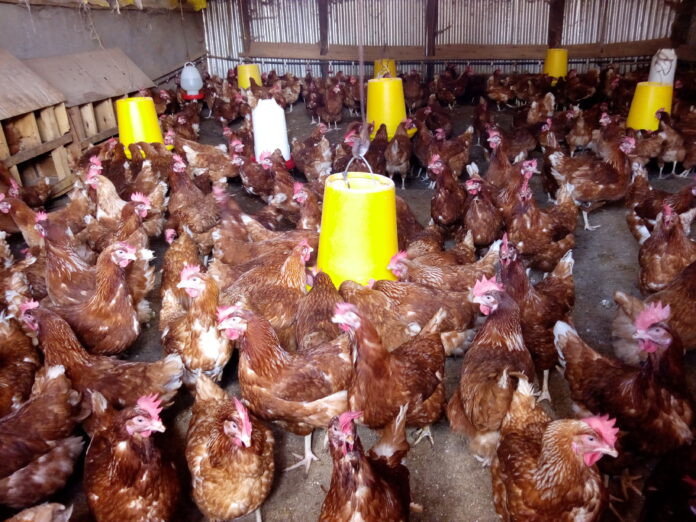Poultry farming is one of the most popular types of farming practiced in the country. This is due to the huge demand of eggs and chicken meat products which has a ready market.
Waste from poultry farming is also used and sold as farm manure or sieved to be animal feed.
This therefore calls for farmers to be well informed on how to best rear chicken and maximize their produce making the most profit.
To succeed in poultry farming and especially layers, a farmer needs to understand a flock’s production capabilities, how to budget and plan for feeds, when to expect the first eggs, factors that may influence the onset of laying eggs and when to expect big poultry production in Kenya.
Feeding
Layers should be fed with adequate layers’ mash and broilers with growers’ mash.
The birds need a balanced diet with all the necessary nutrients for healthy body growth for optimum production.
Cate Simiyu: How I bounced back after losing my Sh700,000 business in fire accident
This includes protein and calcium for layers for maximum egg production.
The birds should also be provided with enough clean drinking water to help with digestion, eggs production and proper growth.
Lighting
The duration of exposure to light should also be moderated.
Exposure to light for less than the minimum time ideally 14 hours of daylight results to a drop in egg production.
When lights are off poultry birds do not feed which leads to low egg production.
Housing
The house should be well secured to keep away predators, be spacious enough for the birds to walk around freely and have proper ventilation for fresh air supply.
The housing structure should protect the birds from adverse temperatures such as cold or extreme heat.
Extreme heat or cold affects production and may cause mortality highlights africanfarming.com
The coop and brooder should be kept clean, dry and sanitized to reduce moisture that encourages disease causing organisms notes zakenya.com
Timely vaccination
A farmer should always remember to vaccinate the birds in time against pests and diseases, give them vitamins and remember to debeak them too to maintain a good health.
Breeding
This can make egg laying breeds more productive with large laying flocks.
It consists of identifying the most productive females and their male offspring and using these birds to create a line that performs exemplary on the farm notes ecofarmingdaily.com
Record keeping
A farmer should keep records on the poultry such as vaccination dates, production rate such as egg laying birds for easy tracking to assess performance and to know where to improve efficiency.
Handling of birds
Birds should be protected from sudden changes, disturbances, rough handling, foreign visitors’ interference as this might stress them lowering production.
The birds should be held gently with the hand beneath the breast, never by the feet adds livestockkenya.com.









